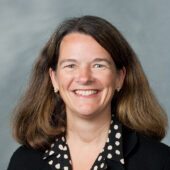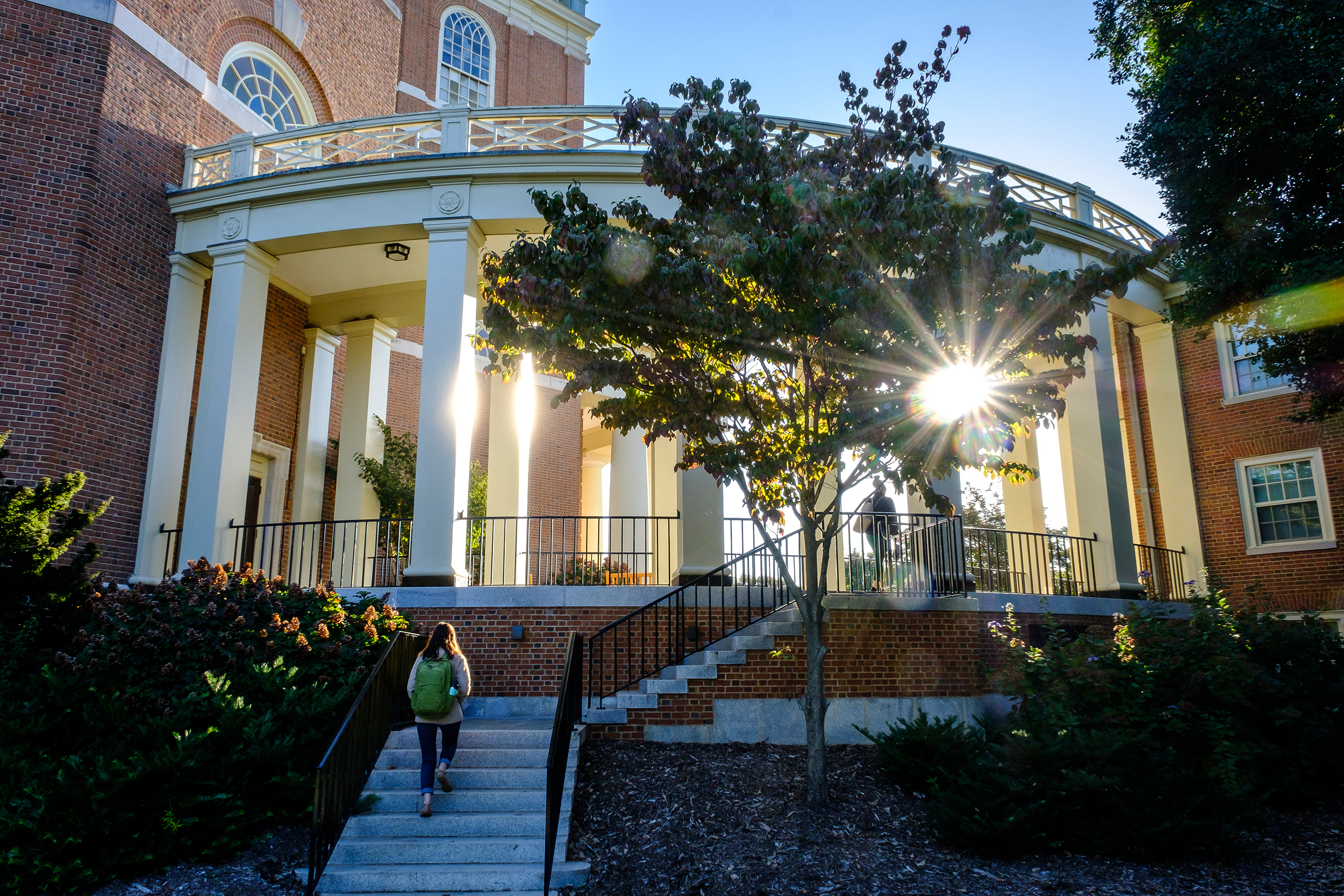WFU awarded $160M NSF grant to advance regenerative medicine
Colleges and universities across the region collaborate on 10-year project

Wake Forest University is a recipient of one of the first-ever US. National Science Foundation Regional Innovation Engine (NSF Engines) awards in partnership with educational institutions and other organizations across the region.
Announced today during a visit by First Lady Jill Biden and NSF Director Sethuraman Panchanathan to Winston-Salem, the NSF Engines grant provides $15 million for the first 2 years of the project and up to $160 million for 10 years.
The Piedmont Triad Regenerative Medicine Engine, based in Winston-Salem, will tap the world’s largest regenerative medicine cluster to create and scale breakthrough clinical therapies, contributing to an ever-growing industry that is key to healthcare delivery.
Led by Wake Forest Institute for Regenerative Medicine (WFIRM), the regional innovation engine team includes Forsyth Technical Community College (FTCC), North Carolina Agricultural and Technical State University (N.C. A&T), the RegenMed Development Organization (ReMDO), and Winston Salem State University (WSSU).
“Wake Forest University is proud to be an engine in our city and region for scientific and medical innovations that have the power to transform and save lives,” said Wake Forest University President Susan R. Wente. “This National Science Foundation grant will have a transformative impact in advancing regenerative medicine and catalyzing significant economic development across our city and region. With WFIRM’s partnerships with North Carolina A&T, Winston-Salem State University, and Forsyth Tech, this grant will also create important pipelines into STEM careers.”
The Wake Forest Institute for Regenerative Medicine is recognized as an international leader in translating scientific discovery into clinical therapies, with many world firsts, including the development and implantation of the first engineered organ in a patient.
“We are excited to work with the NSF in the formation of a regenerative medicine engine that is centered on the development of use-inspired products, training and commercialization, thereby expanding job opportunities and economic development to our region,” said Dr. Anthony Atala, director of WFIRM.
Launched in May 2022, the NSF Engines program uniquely harnesses the nation’s science and technology research, development enterprise and regional-level resources.
“The inaugural NSF Engines awards demonstrate our enduring commitment to create opportunity everywhere and enable innovation anywhere,” said NSF Director Sethuraman Panchanathan. “Through these NSF Engines, NSF aims to expand the frontiers of technology and innovation and spur economic growth across the nation through unprecedented investments in people and partnerships. NSF Engines hold significant promise to elevate and transform entire geographic regions into world-leading hubs of innovation.”
WFIRM is located in Innovation Quarter, a vibrant, mixed-use innovation district located in downtown Winston-Salem. Anchored by Wake Forest University School of Medicine—the academic core of Advocate Health—Innovation Quarter is home to a community of more than 4,500 workers in 115 companies and four other institutions of higher learning. Innovation Quarter features developmental spaces and workspaces to allow expansion of small business and research facilities.
See the WFIRM announcement for additional details about the project.
About Wake Forest Institute for Regenerative Medicine
The Wake Forest Institute for Regenerative Medicine is recognized as an international leader in translating scientific discovery into clinical therapies, with many world firsts, including the development and implantation of the first engineered organ in a patient. Over 500 people at the institute, the largest in the world, work on more than 40 different tissues and organs. A number of the basic principles of tissue engineering and regenerative medicine were first developed at the institute. WFIRM researchers have successfully engineered replacement tissues and organs in all four categories – flat structures, tubular tissues, hollow organs and solid organs – and 16 different applications of cell/tissue therapy technologies, such as skin, urethras, cartilage, bladders, muscle, kidney, and vaginal organs, have been successfully used in human patients. The institute, which is part of Wake Forest University School of Medicine, is located in the Innovation Quarter in downtown Winston-Salem, NC, and is driven by the urgent needs of patients. The institute is making a global difference in regenerative medicine through collaborations with over 500 entities and institutions worldwide, through its government, academic and industry partnerships, its start-up entities, and through major initiatives in breakthrough technologies, such as tissue engineering, cell therapies, diagnostics, drug discovery, biomanufacturing, nanotechnology, gene editing and 3D printing.
Categories: Top Stories
Wake Forest News
336.758.5237
media@wfu.edu
Meet the News Team
Wake Forest in the News
Wake Forest regularly appears in media outlets around the world.




